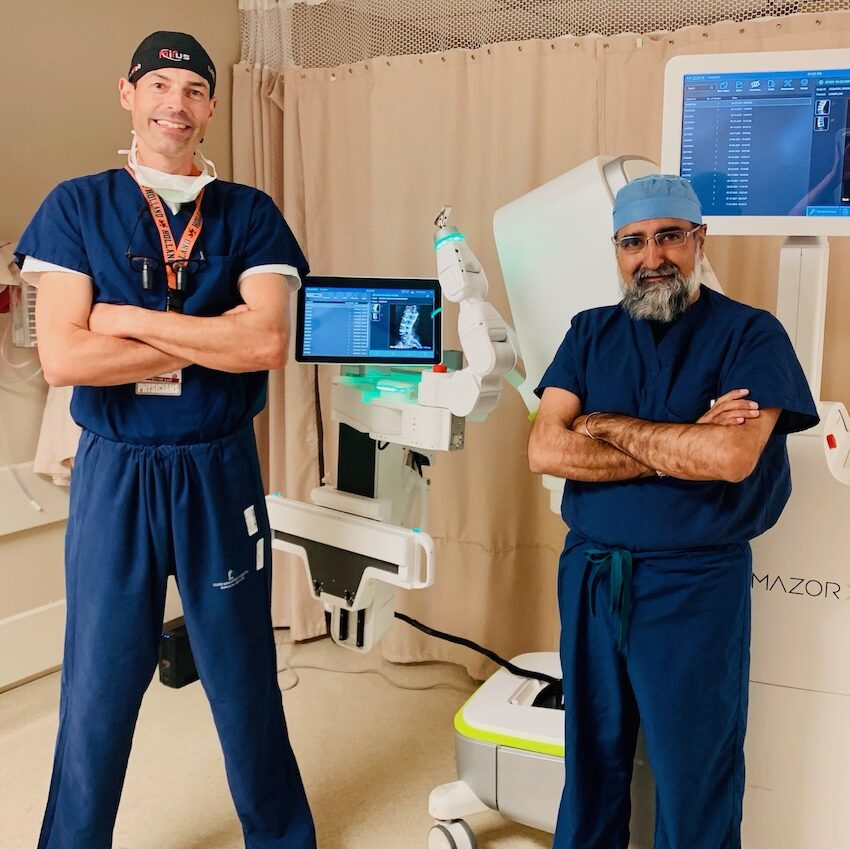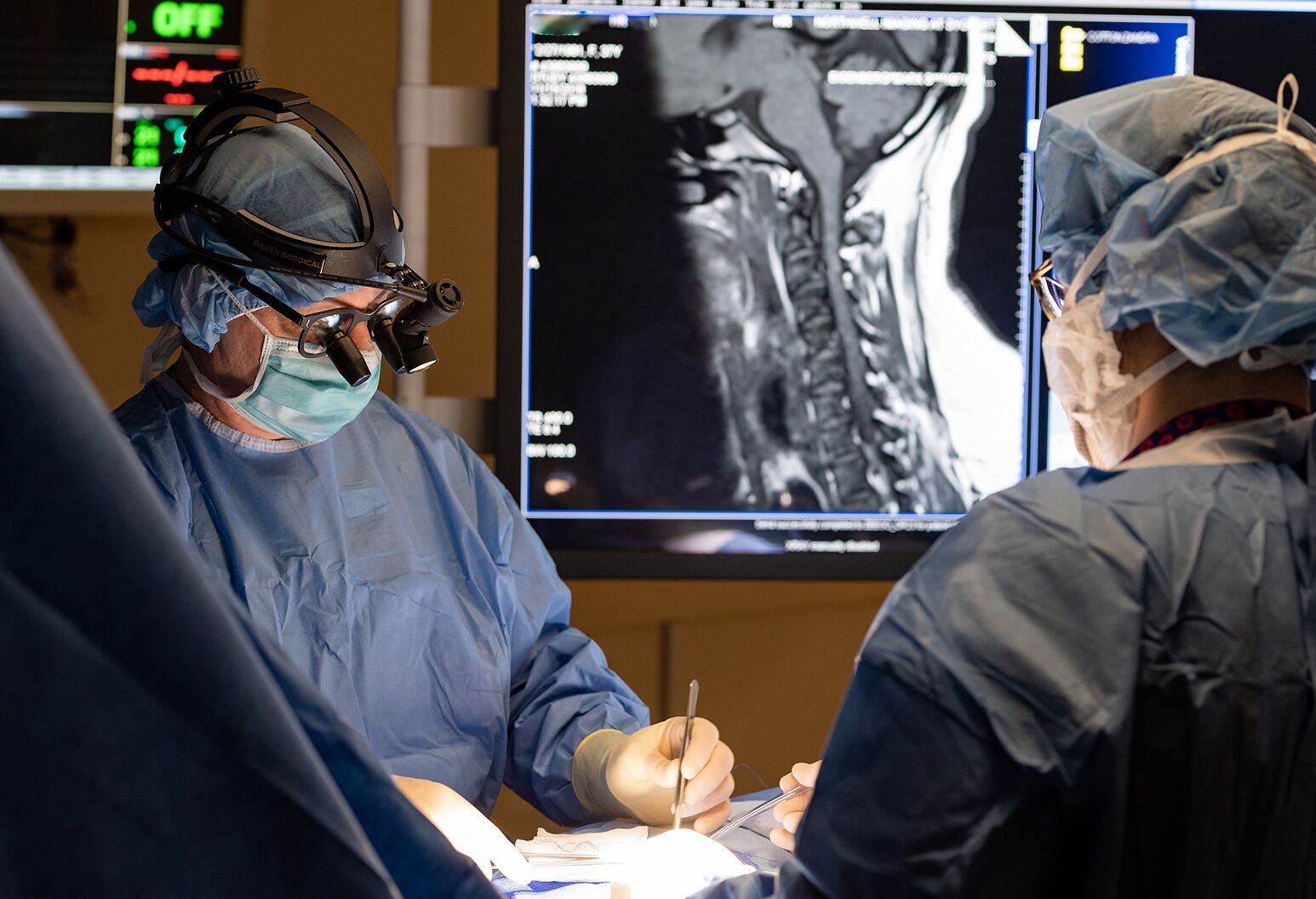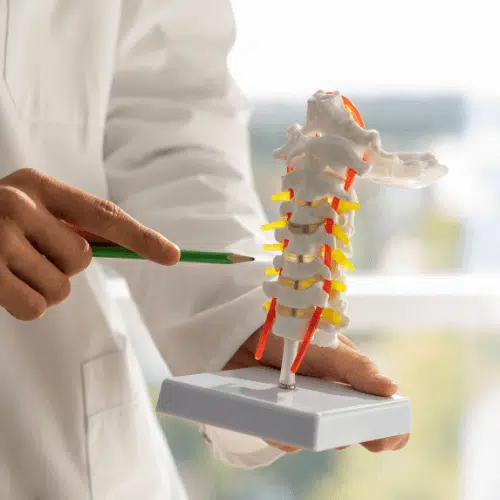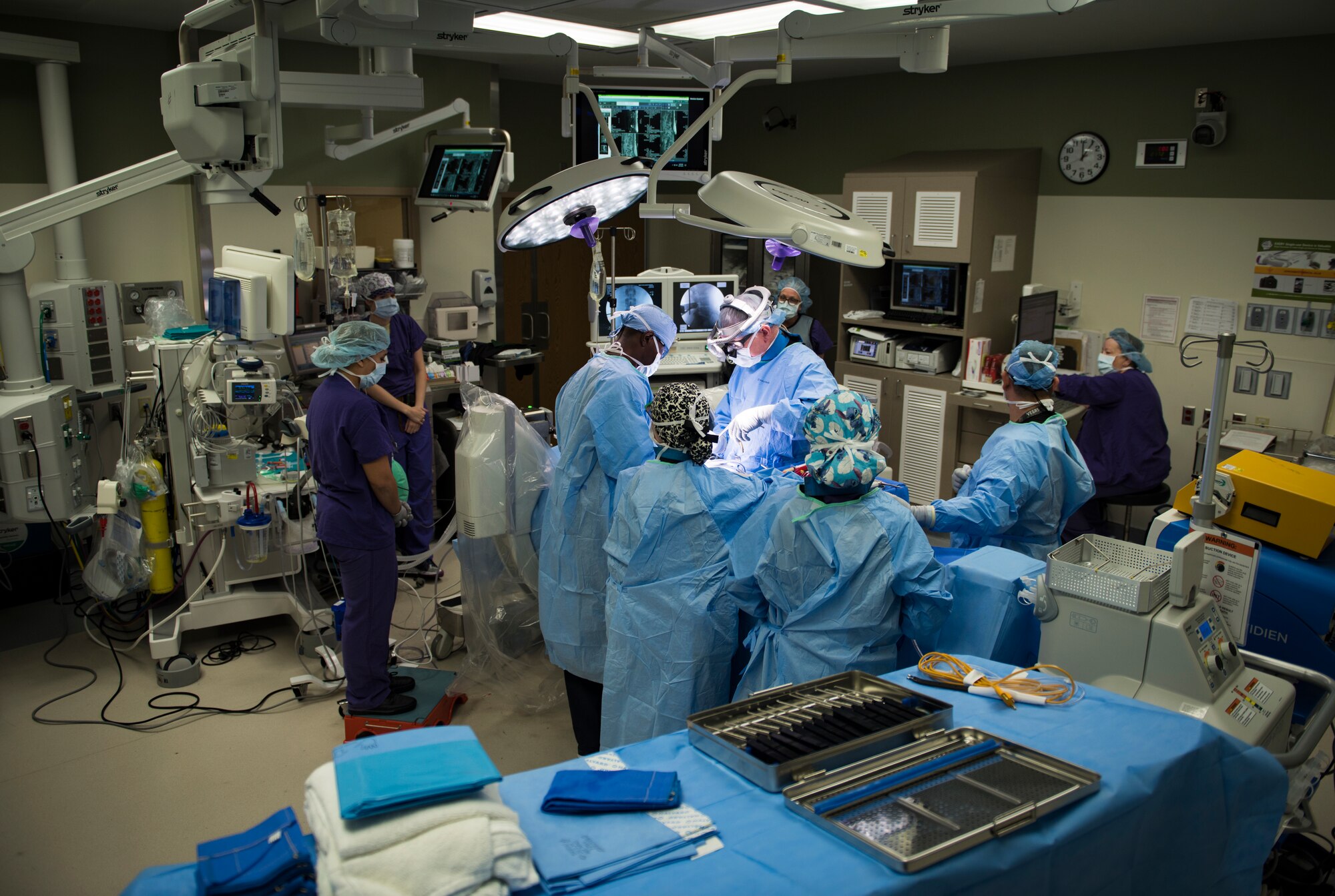An Overview of Spinal Column Problems That Usually Lead To Surgical Therapies
Spinal column problems such as herniated discs, back stenosis, and degenerative disc illness regularly necessitate medical treatments when conservative therapies fail to minimize consistent symptoms. Understanding the nuances of each problem and the corresponding medical options, such as discectomy or spine combination, is vital for efficient monitoring.
Herniated Discs
Although many individuals with herniated discs might find relief via conservative treatments, surgical procedure comes to be a needed factor to consider when signs and symptoms continue or aggravate - best spine surgeons in st louis mo. A herniated disc happens when the soft inner gel of a back disc sticks out through its outer layer, potentially compressing neighboring nerves and leading to discomfort, pins and needles, or weak point in the extremities
Conventional administration commonly consists of physical treatment, pain medicines, and corticosteroid injections, which intend to minimize inflammation and enhance feature. Nevertheless, in situations where these techniques fail to alleviate devastating signs and symptoms, medical alternatives might be discovered.
The most typical medical treatment for herniated discs is a discectomy, which involves the elimination of the herniated section of the disc to alleviate stress on the impacted nerve root. In much more extreme situations, spine combination might be essential to maintain the affected vertebrae.
Patients are advised to review the possible dangers and advantages of surgery with their health care copyright to make an informed choice. Inevitably, the objective of any surgical intervention is to bring back feature, alleviate pain, and enhance total lifestyle for people experiencing herniated discs.
Spine Constriction
Spine constriction happens when the areas within the spine slim, leading to raised pressure on the spine and nerves. This condition can establish in various areas of the spine, consisting of the lumbar and cervical areas, commonly as a result of age-related adjustments, such as degenerative disc condition, joint inflammation, or thickening of ligaments.
Individuals with back constriction might offer with symptoms that include pain, tingling, tingling, or weakness, largely in the legs or arms. These signs can be worsened by tasks that include standing or strolling, frequently leading individuals to seek relief with conventional therapies like physical treatment, medications, or epidural steroid injections.
However, when these non-surgical interventions stop working to provide adequate relief, medical alternatives might be thought about. Typical surgical treatments for spine constriction include laminectomy, which entails the removal of component of the vertebra to reduce pressure, and back fusion, which stabilizes the damaged area.
Spondylolisthesis
Spondylolisthesis occurs when one vertebra slips forward over another, bring about misalignment of the spine. This condition can result from different aspects, including congenital issues, injury, or degenerative modifications in the spine. It is most frequently observed in the back region, particularly at the L4-L5 and L5-S1 degrees.

When non-surgical techniques fail to eliminate signs and symptoms or when substantial nerve compression is existing, surgical treatment may be required. Surgical alternatives can include spinal blend or decompression treatments, intended at bring back alignment and relieving neurological signs and symptoms.
Degenerative Disc Condition

The problem can be diagnosed through a mix of medical assessment, imaging research studies, and individual history. When these techniques fall short to offer ample relief, surgical interventions might be considered.
Surgical alternatives for DDD may include spinal combination or fabricated disc replacement, targeted at maintaining the affected segment and minimizing pain (best spine surgeons in st louis mo). Eventually, the choice of therapy is embellished, thinking about the extent of the problem, patient health and wellness, and way of living elements
Spinal Growths

Spinal tumors can arise from different elements, including hereditary tendency, ecological impacts, and pre-existing clinical problems. People might offer with a variety of symptoms, including local discomfort, neurological deficiencies, weak point, or modifications in bowel and bladder feature, depending on the lump's size and place.
Diagnosis generally entails go imaging research studies such as MRI or CT checks, which assist delineate the lump's characteristics and effect on bordering structures. In analyzing therapy choices, the lump's kind, location, and quality are critical considerations. Surgical intervention might be required to reduce signs, obtain a biopsy, or remove the growth completely. The objective of surgical treatment is typically to decompress neural elements and support the spine. Adjuvant therapies, including radiation or radiation treatment, might likewise my link be required depending on the tumor's nature. Early detection and treatment are vital for maximizing outcomes in individuals with spinal tumors.
Conclusion
In recap, spine conditions such as herniated discs, spine constriction, spondylolisthesis, degenerative disc illness, and spinal lumps often necessitate medical treatment due to their prospective to cause significant pain and functional impairment. While conservative treatments may supply short-lived alleviation, surgical alternatives end up being essential when signs and symptoms persist or aggravate. Prompt medical diagnosis and intervention play an essential role in restoring function and improving the quality of life for damaged people, highlighting the significance of comprehensive spinal treatment.
